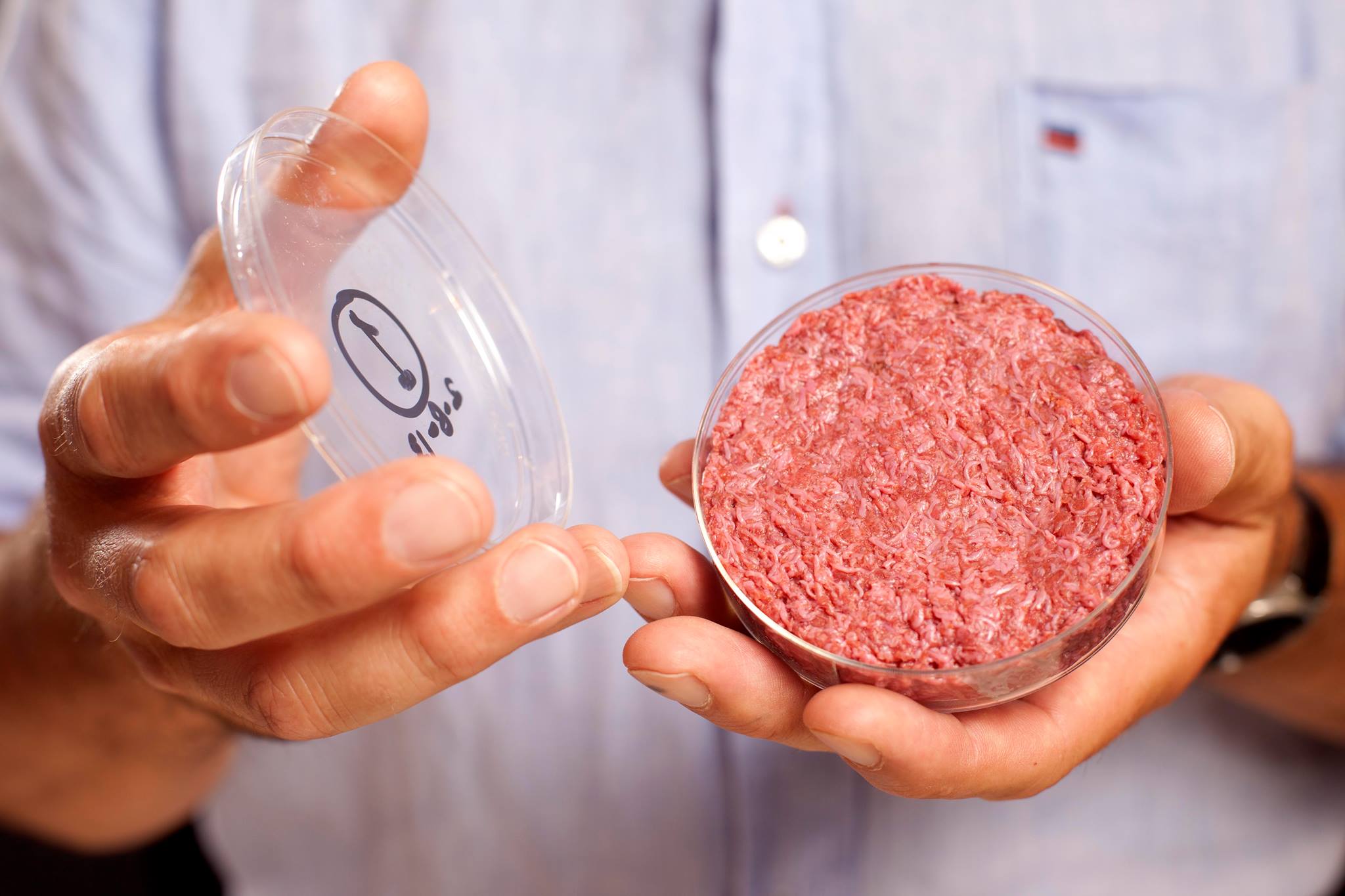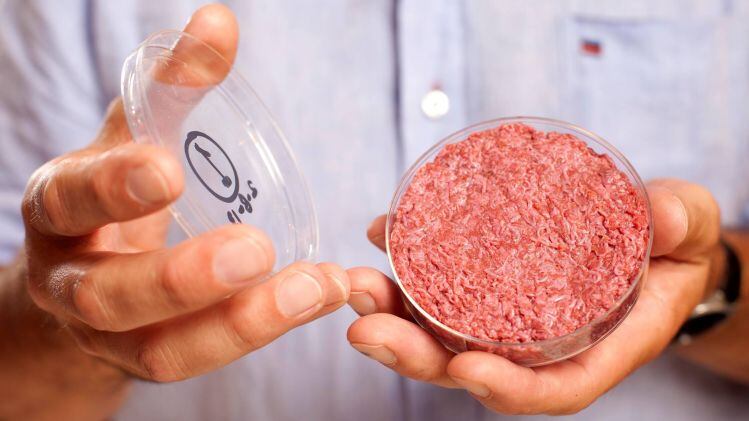The term 'clean meat’ – coined because cell-based meat is cultured in a clean environment and because it has a lower environmental footprint (like 'clean energy') - has become more widely used in the media over the past year as the GFI has sought to popularize the term. However, it has had some pushback, given its tacit implication that regular meat is 'dirty,’ coupled with confusion over what it means.
While regulators will ultimately decide how companies growing meat without slaughtering animals must label their wares, industry stakeholders have sought to get ahead of the debate by agreeing on a term that might satisfy regulators and consumers without alienating the conventional meat industry, settling tentatively on ‘cell-based meat’ (a term with which the North American Meat Institute is also comfortable).
While ‘cell-based meat’ got good marks for descriptiveness and differentiation, however, it did not perform well on appeal or purchase intent vs other options in a new study of 1,004 consumers* led by GFI senior consumer research scientist Keri Szejda, PhD and Datassential.
When it came to purchase intent, 47% of consumers were very or extremely likely to purchase slaughter-free meat vs 43% for craft meat, 42% for clean meat, 37% for cultured meat, and 34% for cell-based meat.
As for appeal (To what extent do you find each of the following names appealing?) cell-based meat came last of the five options, with clean meat at #1, followed by slaughter-free meat, craft meat, and cultured meat.
‘Slaughter-free meat was the only high performer on every tested criterion’
According to a GFI blog post on the survey: “Slaughter-free meat was a promising find, as it was the only high performer on every tested criterion. Its appeal is not surprising, given that Oklahoma State University found that 47% of consumers want to ban slaughterhouses. Its descriptiveness is simple and straightforward.
“However, there are concerns about the neutrality of this term and its capacity to serve as a consensus-builder among all the stakeholders.”
'Cultured meat' also ranked better than ‘cell-based’ for appeal and likelihood to purchase, but may be a non-starter for cell-based seafood given that cultured fish is already a term associated with aquaculture.
What happens next?
The GFI is now working with Bay area-based food and beverage innovation firm Mattson to try to find “a name that will work in all circumstances,” said the GFI, which has invited cellular agriculture companies to participate in the project.
For now, the GFI will continue to use the term ‘clean meat’ “in popular discourse” and ‘cultured meat’ or ‘cell-based meat’ “where we feel that the word ‘clean’ might be counterproductive.”
Mattson: 'The very existence of what's now known as clean meat is at stake here'
Asked by FoodNavigator-USA why picking the right name is so important, Mattson president and chief innovation officer Barb Stuckey said: "The very existence of what's now known as clean meat is at stake here.
"Without approval from consumers and regulatory agencies alike, it won't matter whether the burgeoning sector can successfully scale the technology. It's critical to get the communication right. We want to help enable this awesome innovation see the light of day."
Asked about the scope of the project, she said: "Mattson will be helping GFI approach this project as a positioning and branding challenge, which entails a different way of thinking beyond descriptive verbiage.
"We'll be leveraging the amazing research that GFI has done with their partners to make sure that every stone has been turned over. While the industry has been using both 'clean meat' and now 'cell-based meat,' the search continues. We are where we are because neither one has been shown to work in multiple situations."
Is there a single term than can work for all constituencies?
So what about the notion that stakeholders coin one term for food labels/regulators and another for marketing purposes to talk with the general public?
"We are going into this project without bias," said Stuckey. "If it ends up that a two-term approach is right, then that's what we'll pursue. But it is Mattson and GFI's belief that there is a single term out there than can work for all constituencies."
* Check out the full survey data and methodology HERE, but to summarize, the GFI generated 71 names after consulting key stakeholders, narrowed the list down to 31, and then conducted a preliminary consumer survey to assess each name’s appeal and descriptiveness, shrinking the list down to five names that merited deeper study: Clean meat, craft meat, cell-based meat, cultured meat, and slaughter-free meat.
It then worked with Datassential to poll 1,004 US consumers on perceptions: Does the name sound appealing? Does it provide an accurate description? Does it help differentiate the product from conventional meat? and intended behaviors: Would you try it? Would you buy it?
“We’re comfortable with the term ‘cell-based meat’ as it’s nice and neutral.” Daan Luining, CTO, Meatable
"I'm open-minded on finding the best term, but these new survey results showing that 'cell-based meat' really turns off consumers should give us pause. It's important to let actual evidence guide such an important decision, and so far the evidence suggests that 'clean meat' is appealing to consumers while 'cell-based meat' isn't. Perhaps this suggests that 'clean meat' is good for consumer-facing discussions while 'cultured meat' is better for scientific and regulatory venues." Paul Shapiro, author of Clean Meat: How Growing Meat Without Animals Will Revolutionize Dinner and the World
“Recognizing a shared desire to support innovation and feed the world, moving forward we will use the term ‘cell-based meat and poultry’ to describe the products that are the result of animal cell culture.” Memphis Meats and the North American Meat Institute
“Perhaps a two-term approach is the most pragmatic: a term for popular discourse and a term for technical, regulatory affairs? Or maybe there is a unifying term that can accomplish both in one fell swoop? If there is, we want to find it.” The Good Food Institute
“My view is that ‘cell-based’ is very neutral, it is not the most appealing name, but does not provoke anyone…” Benjamina Bollag, co-founder and CEO, Higher Steaks
“It is not appropriate to refer to these products using terms such as ‘clean meat,’ nor should these products be named or described in a way that disparages conventional animal proteins.” National Chicken Council
“Fish made from cell-culture technology must be identified to accurately distinguish the product from harvested (either wild or farmed) seafood.” National Fisheries Institute
“An extremely important issue to Hormel Foods is how these novel products are labeled... If the same terminology (i.e., meat and poultry) are used on very different foods, consumers will need the necessary information to differentiate between the two and make a choice between products.” Hormel Foods
“The term ‘clean meat’ is used by some when referring to these products. However, as with any other food item, it too can become contaminated with dangerous pathogens if not handled properly. Using such terms could lead a consumer to believe proper cooking and handling procedures are not necessary; a serious food safety concern.” National Turkey Federation

How do US consumers feel about cell-based meat?
A new study exploring consumer attitudes to clean meat (meat cultured from animal cells outside of an animal) suggests that Americans are surprisingly open to the concept, particularly when presented with information about how ‘conventional’ meat is produced at scale, with 66% willing to try it. However, they proved somewhat resistant to attempts to present clean meat as ‘natural.’



